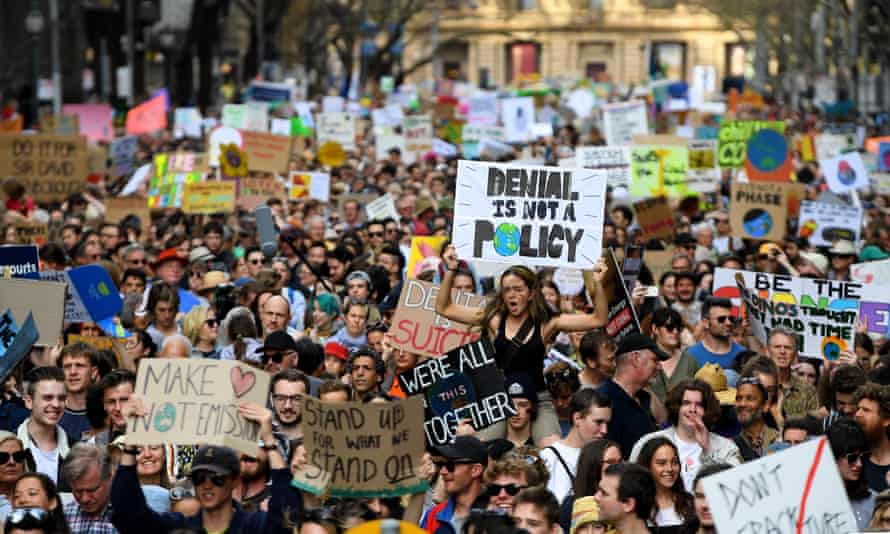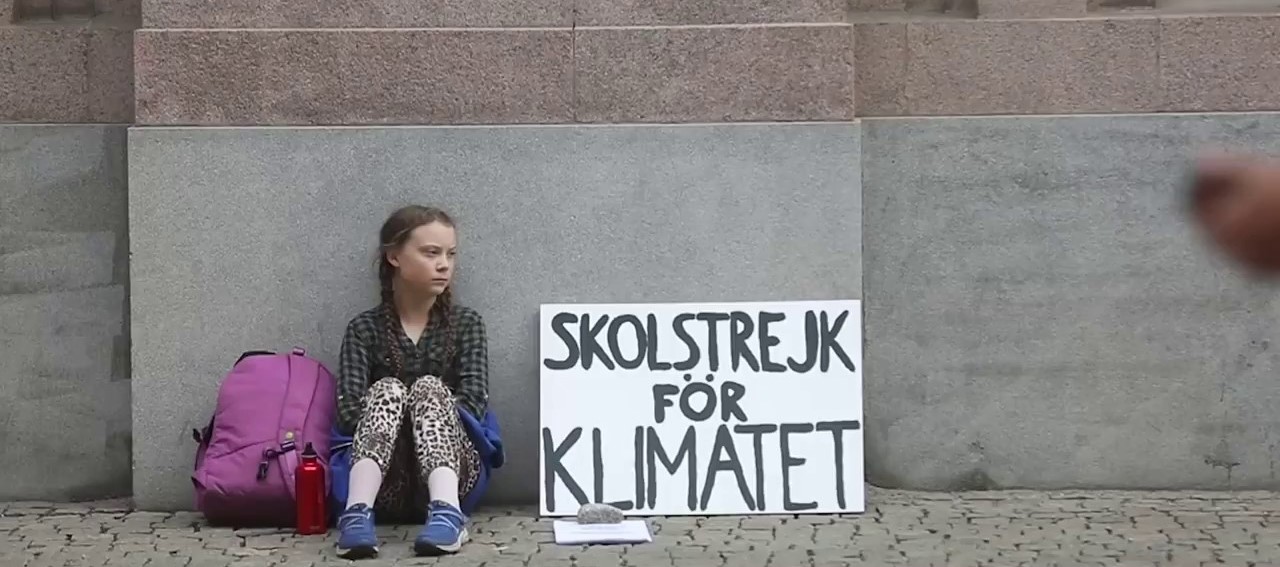“Is the microphone on? Is it really on? Is my English ok? Because I’m beginning to wonder.”
In October 2020, the release of a new documentary, I Am Greta, slipped under the radar despite carrying considerable global importance. The 90 minute film, which is available in the UK on BBC iPlayer, follows Greta Thunberg’s journey to the centre stage of the climate crisis and offers an intimate delve into her offstage life.
Who is Greta Thunberg?
Thunberg is an 18 year old climate activist from Stockholm, Sweden, who has been campaigning for action since 2018 – when she was just 15. She was asked to speak at the United Nations Climate Change Conference in 2018 and has since made 13 formal speeches, won eight awards, and received an honorary degree from the University of Mons, Belgium – among countless other achievements. Thunberg lives with Asperger syndrome which means she can become laser-focussed on a project for a long period of time; something she credits for propelling her commitment to climate action.
In the documentary, Thunberg confessed that learning about the climate crisis sent her mental health spiralling and, for the next three years, she experienced depression, anxiety, and selective mutism. While this could only have been incredibly harrowing for a young person, some of those who oppose Thunberg’s views use her mental health as ammunition, along with her age and Asperger’s, to negate her efforts. Michael Knowles, host of the Daily Wire, was forced to apologise after calling Thunberg a “mentally ill Swedish child who is being exported by her parents and the international left” live on Fox News.
The climate problem
By now we should all be familiar with the threats facing our planet, but let’s just recap. In short, human exploitation of Earth’s resources is dramatically altering global climate and temperature. The main causes of this are deforestation, fossil fuel combustion, and intensive farming of agriculture – all of which are driving a build-up of greenhouse gases in our atmosphere and incubating everything below it.
The effects of this? Increasing temperatures, frequency of extreme weather events, glacier melt and rising sea levels, species extinction, and disease transmission… to name just a few. If no immediate action is taken we could be facing a non-biodiverse desert of a planet in the not too distant future.
Unfortunately, this is just the issue. In arguably her most powerful speech to date, How Dare You, Greta Thunberg attacked global leaders at the 2019 UN Climate Summit for their laziness in taking action. Thunberg directly addressed politicians with the emotionally charged expression “all you can talk about is money and fairy tales of eternal economic growth. How dare you?” And yet, targets set out by the 2015 Paris Agreement are still far from being met, a rail tunnel is being planned between Scotland and Northern Ireland, and some of the most influential world leaders are still travelling via private jets.
#FridaysForFuture
You might remember hearing about – or even attending – a school strike for climate last year. These were the brain-child of Greta Thunberg, who began her #FridaysForFuture campaign by protesting outside the Swedish parliament building in August 2018. The original strike took place outside the Riksdagshuset, Sweden’s parliament building, in the three weeks building up to the Swedish election. Now, over 14 million people have taken part across 7,500 global cities.
The aim? To keep global temperature rise below 1.5 °C compared to pre-industrial levels, in line with the Paris Agreement.

What can I do?
There are many things you can do to help the movement reach their aim. Below are five of the most effective strategies, although there are many more ways to protect the future of the planet.
- Stop eating meat and dairy. These make up around 14% of greenhouse gas emissions.
- Reconsider your mode of transport. Planes and petrol/diesel cars are the most polluting forms of transport. Where possible, switch to cycling, or take the bus or train for longer journeys.
- Switch to green energy. And if installing solar panels is too expensive, you can easily switch to a green energy provider. You can also save energy in the house by turning off lights and appliances (at the plug) when they aren’t in use.
- Protect green spaces. Trees and other plants are important sinks of carbon dioxide and are critical for biodiversity.
- Join the Fridays for Future movement. The more voices there are, the more likely politicians are to listen.
I Am Greta offers a personal insight into the life of a student whose passion to preserve the planet we live on has derailed her own school career. We shouldn’t have to rely on the desperate attempts of a school girl to protect our futures; however, we should be inspired to take the individual initiative to make small, effective changes in our own lives.
View the trailer here.
By Morwenna Davies
Header image: Greta Thunberg

